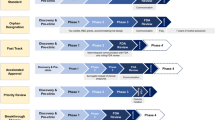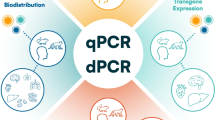Summary
Drug lag, which delays patients’ access to medicinal products, is typically associated with pharmaceutical regulations. To shorten drug lag, health authorities may establish new policies to liberalize the regulations, a step that is important in countries, such as Taiwan, with consumer demand for imported novel therapeutic agents. Taiwan’s government enacted Articles 38–1 and 38–2 of Regulations for Registration of Medicinal Products to relax the regulatory barriers for new drug submission, thus conditionally exempting the requirement for the Certificate of Pharmaceutical Product (CPP). This study examined whether the enacted regulations reduce submission lag by analyzing the time gap of submission between Taiwan and the United States during 2014–2017. The results indicated that the enacted regulations substantially affected submission lag. Submission lag was significantly shorter for applications not requiring a CPP than those requiring one CPP, which in turn was significantly shorter than those requiring two CPPs. This conclusion can be applied to biological, chemical, non-orphan, and oncology drugs and also applications filed by subsidiary companies, but not orphan drugs and applications filed by contract agents. Among applications requiring one CPP, oncology drugs showed the shortest submission lag. Certain factors, such as clinical studies recruiting over-threshold Taiwanese participants and those performed before the submission of new drug application in the United States, may shorten submission lag. In summary, this study justifies the policy of the exemption from CPP requirements, which supports the hypothesis that relaxing regulatory barriers can reduce submission lag in Taiwan.







Similar content being viewed by others
References
Chung CJ, Huang WF (2006) A study on drug innovation lag in Taiwan. J Food Drug Anal 14(1):1–6
Wileman H, Mishra A (2010) Drug lag and key regulatory barriers in the emerging markets. Perspect Clin Res 1(2):51–56
Tanimoto T (2015) A perspective on the benefit-risk assessment for new and emerging pharmaceuticals in Japan. Drug Des Devel Ther 9:1877–1888. https://doi.org/10.2147/DDDT.S62636
Poirier AF (2015) Closing the drug lag for new drug submission and review in Japan: an industry perspective. Clin Pharmacol Ther 98:486–488. https://doi.org/10.1002/cpt.192
Yonemori K, Hirakawa A, Ando M, Hirata T, Yunokawa M, Shimizu C, Katsumata N, Tamura K, Fujiwara Y (2011) The notorious "drug lag" for oncology drugs in Japan. Investig New Drugs 29:706–712. https://doi.org/10.1007/s10637-011-9638-0
Pharmaceuticals and Medical Devices Agency, Japan (2012) Basic principles on global clinical trials. Notification No. 0928010
Sun IC, Gau CS (2018) Analysis of refuse-to-file policy for generic drug application in Taiwan. Regul Toxicol Pharmacol 94:33–39. https://doi.org/10.1016/j.yrtph.2018.01.004
Sun IC (2016) Advantages of using an abbreviated dossier for drug master file applications in Taiwan. Regul Toxicol Pharmacol 80:310–313. https://doi.org/10.1016/j.yrtph.2016.05.034
Sun IC, Shy HS, Liao TY (2016) Effect of regulation reform on clinical trials for registering novel therapeutic agents in Taiwan: a chronological analysis. Investig New Drugs 34:364–370. https://doi.org/10.1007/s10637-016-0322-2
A10 countries include Australia, Belgium, Canada, France, Germany, Japan, Sweden, Switzerland, UK, and USA referred to Article 7 of Regulations for Registration of Medicinal Products, Ministry of Health and Welfare, Taiwan (2018)
Chern HD (1997) Current status of clinical trials and GCP in Taiwan. TIRS 31:1097–1103
Bureau of Pharmaceutical Affairs, Department of Health, Taiwan (1979) Regulations for Registration of Medicinal Products
World Health Organization (WHO) Collaborating Centre for Drug Statistics Methodology (2013) Guidelines for ATC classification and DDD assignment. WHO Collaborating Centre for Drug Statistics Methodology, Oslo
Bureau of Pharmaceutical Affairs, Department of Health, Taiwan (2001) Announcement 0900039753 Revision of registrations of medicinal products
Ueno T, Asahina Y, Tanaka A, Yamada H, Nakamura M, Uyama Y (2014) Significant differences in drug lag in clinical development among various strategies used for regulatory submissions in Japan. Clin Pharmacol Ther 95:533–541. https://doi.org/10.1038/clpt.2013.223
Yamashita K, Kaneko M, Narukawa M (2018) A significant anticancer drug approval lag between Japan and the United States still exists for minor cancers. Clin Pharmacol Ther. https://doi.org/10.1002/cpt.1136
Kesselheim AS, Myers JA, Avorn J (2011) Characteristics of clinical trials to support approval of orphan vs nonorphan drugs for cancer. JAMA 305:2320–2326. https://doi.org/10.1001/jama.2011.769
Liu HE, Li MC (2018) Factors influencing the willingness to participate in medical research: a nationwide survey in Taiwan. PeerJ 6:e4874. https://doi.org/10.7717/peerj.4874
Davis MM, Clark SJ, Butchart AT, Singer DC, Shanley TP, Gipson DS (2013) Public participation in, and awareness about, medical research opportunities in the era of clinical and translational research. Clin Transl Sci 6:88–93. https://doi.org/10.1111/cts.12019
Maeda H, Kurokawa T (2015) Recent trends for drug lag in clinical development of oncology drugs in Japan: does the oncology drug lag still exist in Japan? Int J Clin Oncol 20:1072–1080. https://doi.org/10.1007/s10147-015-0825-4
Kogure S, Koyama N, Hidaka S (2017) Utilization of the bridging strategy for the development of new drugs in oncology to avoid drug lag. J Clin Pharmacol 57:1479–1490. https://doi.org/10.1002/jcph.951
Hirai Y, Kinoshita H, Kusama M, Yasuda K, Sugiyama Y, Ono S (2010) Delays in new drug applications in Japan and industrial R&D strategies. Clin Pharmacol Ther 87:212–218. https://doi.org/10.1038/clpt.2009.215
Funding
The work was supported by the grant MOHW107-FDA-D-113-000443 from Ministry of Health and Welfare, Taiwan.
Author information
Authors and Affiliations
Corresponding author
Ethics declarations
Conflict of interest
I-Chen Sun declares that she has no conflict of interest.
Ethical approval
This article does not contain any studies with human participants or animals performed by any of the authors.
Additional information
Publisher’s Note
Springer Nature remains neutral with regard to jurisdictional claims in published maps and institutional affiliations.
Rights and permissions
About this article
Cite this article
Sun, IC. Significant differences on submission lag following regulation reform for registration of novel therapeutic drugs in Taiwan. Invest New Drugs 37, 1094–1106 (2019). https://doi.org/10.1007/s10637-018-00715-x
Received:
Accepted:
Published:
Issue Date:
DOI: https://doi.org/10.1007/s10637-018-00715-x




